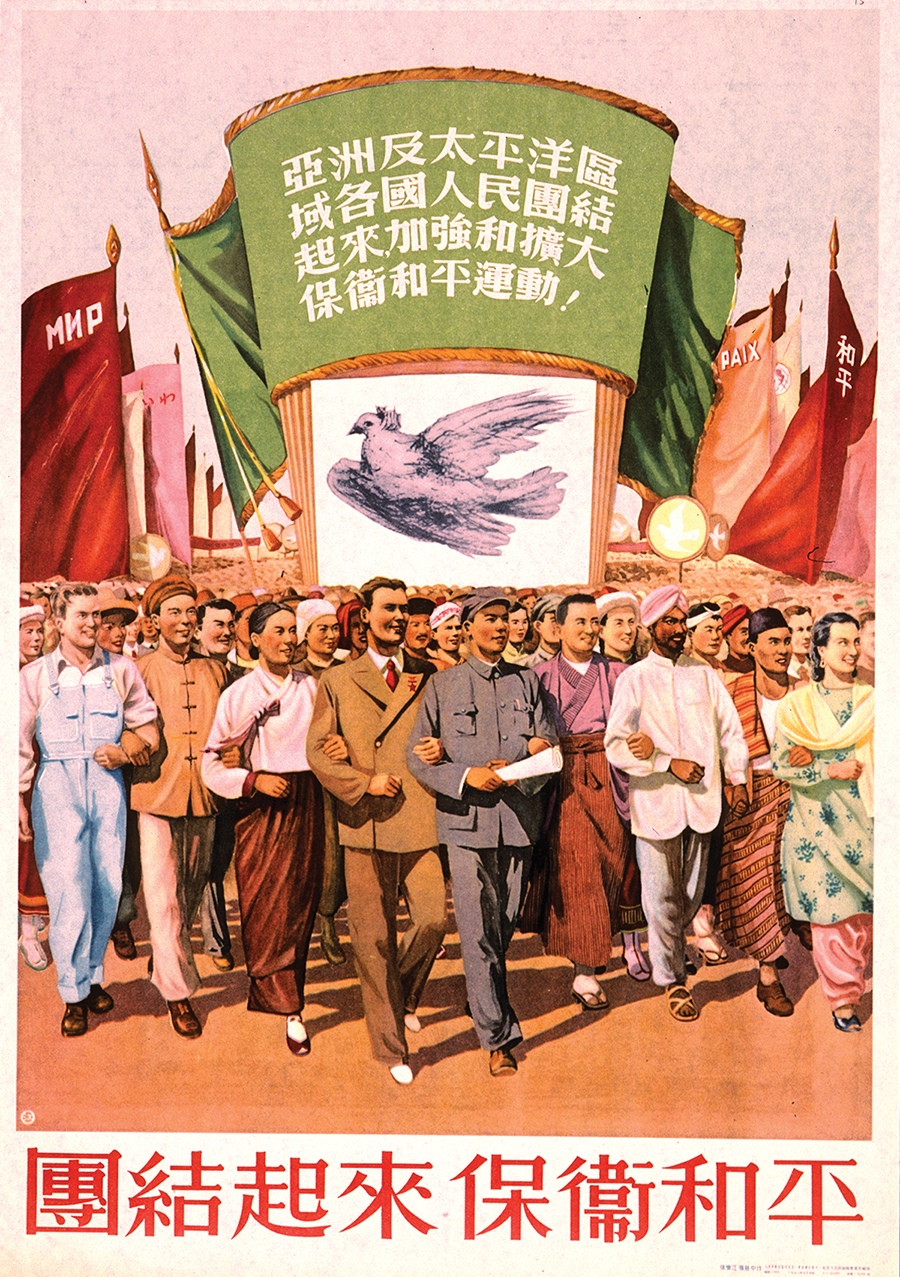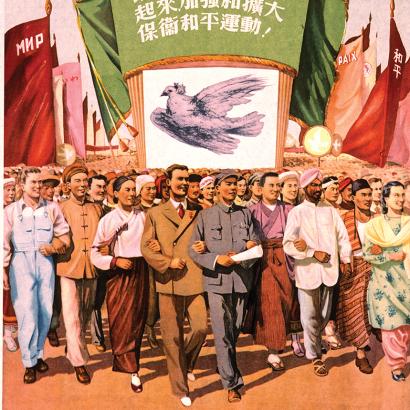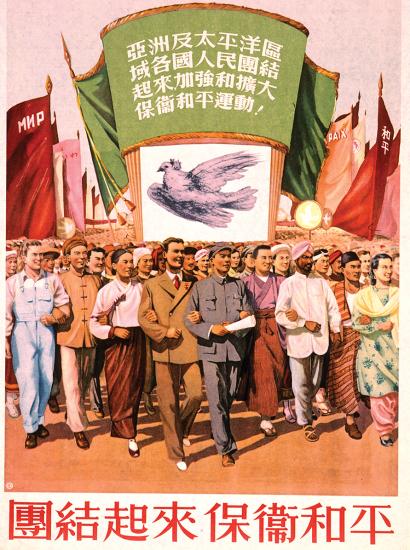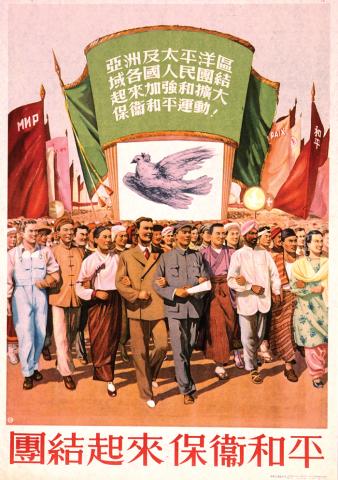- History
- Revitalizing History
The world’s Flat Earthers and History Enders such as Thomas Friedman and Francis Fukuyama must be devastated these days as their dream of a global kumbaya free of value confrontation and ideological struggles has unmistakably slipped into a violent nightmare replete with bloody killings in Ukraine, solemn vows of nuclear provocations on a weekly basis, and threatened obliterations of the democratic Taiwan, South Korea, and Israel.
What we are witnessing is a slow but steady formation of an alliance system that pits one group of powerful nations against the other, eerily reminiscent of the situation leading up to the eruption of guns in August 1914 that would bloody humanity in a prolonged war at the cost of tens of millions of lives.
This emerging alliance system is composed of a cluster of four rogue states, namely China, Russia, Iran, and North Korea, and another cluster of widely spread democracies in North America, Europe, Asia, and elsewhere.
The existence of the four rogue states as the world’s primary source of trouble and instability is not a recent phenomenon. Both the U.S. National Security Strategy and the National Defense Strategy in the early months of the Trump administration correctly identified exactly these four as the primary sovereign threats to global security. However, it is Russia’s war on Ukraine since last year that has served to solidify them as a coordinated Quadruple Axis of aggression and revanchism.
Equally important is that the Ukraine war has also solidified the rapid formation of a global coalition against this newly formed Quadruple Axis of evil. At no time since the end of the Cold War has the line been drawn so clearly and decisively between two opposing clusters of powerful countries, between tyranny and aggression on one side, freedom and independence on the other.
Despite the clearly drawn line, however, there are still quite a few major countries refusing to join the Washington-led coalition of democracies against the Quadruple Axis. The most notable cases in this category are India, Turkey, and Saudi Arabia. It is the inability of the Biden administration to bring them along on the right side of history as America’s unambiguous allies against the Quadruple Axis that has formed another link in the chain of diplomatic embarrassments and humiliations of the Biden administration.
Frustrations with America’s weakened leadership aside, the winning bet should not be placed on the Quadruple Axis as they face monumental obstacles to reach their collective goal of upending world peace and rules-based global order.
First of all, the Quadruple Axis of China, Russia, Iran, and North Korea has mistakenly placed the United States as the sole source of opposition to their grand ambitions of aggression and provocations. While it is certainly true that the U.S. is without any doubt the world’s de facto superpower with a decisive weight in global security and world affairs, as well as the most significant leader against the Quadruple Axis, other geopolitical forces, sovereign and democratic countries, are increasingly willing to join the U.S. in fighting against aggression and provocations, both in Europe and in Indo-Pacific. In other words, the world is not as simplistically imagined as a matter of the U.S. vs the rest of the world, but rather the Quadruple Axis vs the preponderant part of the rest of the world led by the U.S. In a recent UN resolution, 141 countries voted for condemning Russia’s aggression, while only a handful were against or abstaining.
The truth is that the war on Ukraine, and the threatened wars on Taiwan, Israel, South Korea, and Japan, have sharpened the world’s focus on the Quadruple Axis. The result is a rapid formation of a global security agenda that places Ukraine’s independence, Europe’s security, and peace and freedom in the Indo-Pacific, as a common cause engendered by a common threat.
European countries are increasingly less resistant to America’s argument that what causes Russia’s war in Ukraine and China’s threat to invade Taiwan are essentially the same revanchist force. EU’s foreign policy chief Josep Borrell has openly called for European naval patrols in the Taiwan Strait “in order to deter Beijing’s military aggression”; the EU has recently convened an EU-Indo-Pacific summit specifically excluding China’s participation; NATO Secretary General Jens Stoltenberg has repeatedly proclaimed NATO’s responsibility for keeping peace and security in the Indo-Pacific in general, the Taiwan Strait in particular; and NATO’s 2022 Summit in Madrid invited the leaders of Japan, South Korea, Australia, and New Zealand to participate, and issued a statement on confronting China.
Similarly, Japan and South Korea have reached a new rapprochement with each other in light of the common threat from Beijing and Pyongyang; both Tokyo and Seoul have reached historic military and security arrangements with NATO and NATO countries; leaders of Australia, Japan, and South Korea have unambiguously stated that what troubles Taiwan would trouble their country too; and with the change in national leadership, the Philippines has cast away perhaps the last illusion about China’s revanchist intent, signed agreements with the U.S. for military basing rights on islands closest to Taiwan, which will be vital for the coalitions’ military response to China’s planned invasion of the Chinese-speaking island democracy.
Moreover, other than sharing common hatred of the U.S., the Quadruple Axis itself has its inherent clash of ambitions. The leaders of the four rogue states are all imperious tyrants and fancy themselves infallible and invincible, with supreme greatness. However, they differ fundamentally on security priorities, and they are all opportunistic, with China topping them all as the most self-seeking and calculating, ready at any moment to sell out either Russia, Ukraine, Iran, or even North Korea, depending on the direction and strength of the wind blowing at a given moment.
Meanwhile, the countries in the middle that the U.S. has “lost” as partners and allies are hedging not because their national interests necessarily contradict those of the U.S., but because of the anemic American leadership and the current administration’s inability to prioritize global security agendas. With improved leadership in Washington in the next election cycles, those countries will inevitably return to the right orbit, not just for America’s sake, but most importantly for their own.

















